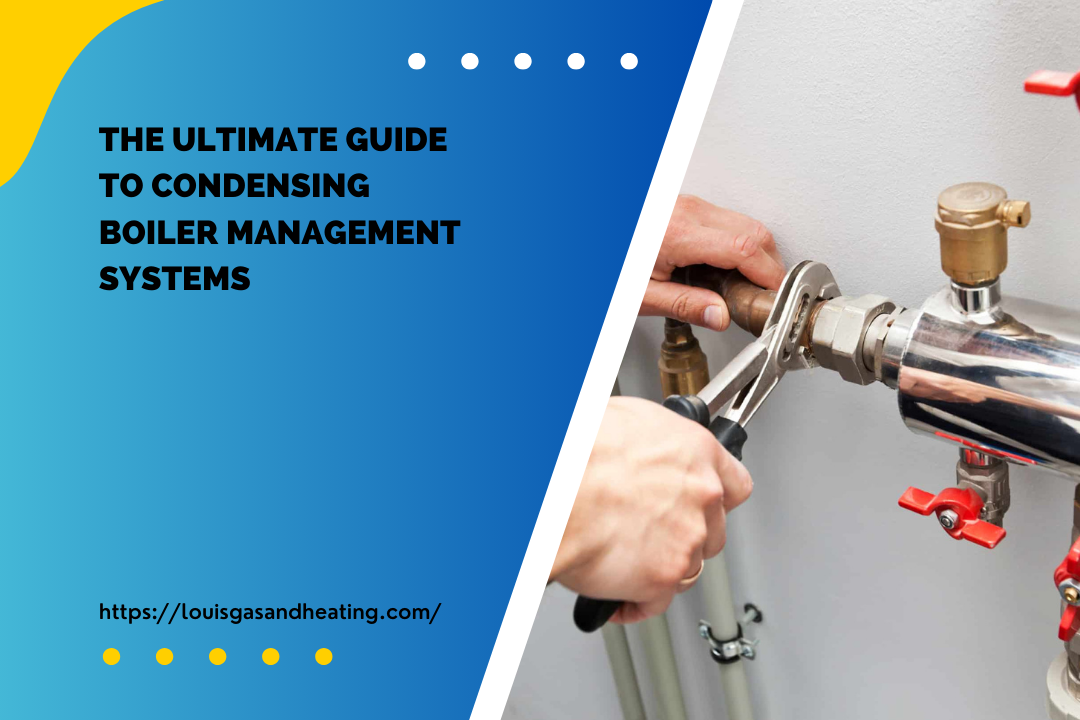In today’s world, energy efficiency is a top priority. Businesses and homeowners alike are constantly seeking ways to reduce energy consumption and lower utility bills. One of the significant advancements in this regard is the adoption of condensing boiler management systems. These systems offer an efficient and environmentally friendly way to heat buildings while ensuring optimal performance. In this comprehensive guide, we will delve into the world of condensing boiler management systems, exploring what they are, how they work, and the benefits they bring to the table.
Understanding Condensing Boilers
What Are Condensing Boilers?
Condensing boilers are high-efficiency heating units designed to capture and utilize heat that would otherwise be wasted in traditional boilers. They are widely used in residential, commercial, and industrial settings to provide space heating and hot water.
How Do Condensing Boilers Work?
Condensing boilers work by recovering heat from the combustion process. Unlike conventional boilers, which release hot exhaust gases into the atmosphere, condensing boilers cool the exhaust gases to the point where water vapour in the exhaust condenses into liquid. This process releases additional heat energy, increasing the boiler’s overall efficiency.
Routine Maintenance
Routine maintenance involves scheduled inspections, cleaning, and component replacements to prevent wear and tear. It includes tasks like checking for leaks, lubricating moving parts, and inspecting pressure relief valves.
Emergency Repairs
In the event of unexpected issues or breakdowns, emergency repair services are essential to quickly address and resolve problems, minimizing downtime and production losses.
Efficiency Optimization
Efficiency optimization services focus on enhancing boiler performance, reducing fuel consumption, and lowering emissions. This can include tuning combustion systems and implementing energy-efficient technologies.
Factors Influencing Boiler Management Costs
Several factors influence the cost of boiler management services:
Boiler Type and Size
The type and size of your boiler play a significant role in determining maintenance costs. Larger, more complex boilers often require more extensive maintenance and may have higher fees associated with their upkeep.
Frequency of Usage
Boilers used frequently may require more regular maintenance to ensure consistent performance. This can lead to higher management fees for heavily utilized boilers.
Age and Condition
Older boilers or those in poor condition may require more extensive repairs and maintenance, resulting in increased costs.
Local Regulations
Local regulations and compliance requirements can impact the cost of boiler management, as certain standards may necessitate specific maintenance procedures.
Benefits of Investing in Boiler Management
Investing in boiler management services offers numerous benefits to businesses:
Increased Efficiency
Efficiently managed boilers consume less fuel, reducing energy costs and environmental impact.
Prolonged Equipment Lifespan
Regular maintenance and repairs extend the lifespan of your boiler, delaying the need for costly replacements.
Compliance with Standards
Adhering to industry regulations and safety standards ensures your business operates legally and responsibly.
Safety Assurance
Proper maintenance reduces the risk of accidents and boiler-related incidents, safeguarding your employees and assets.
How to Choose the Right Boiler Management Service Provider
Selecting the right boiler management service provider is crucial for maximizing the benefits and value of your investment. Consider the following factors:
Experience and Expertise
Look for providers with a proven track record and extensive experience in boiler management.
Customer Reviews
Read reviews and seek recommendations to gauge the quality of service and customer satisfaction.
Cost vs. Quality
Balance cost considerations with the quality of service provided. Opting for the cheapest option may not always be the wisest choice in the long run.
Boiler Management Fee: A Wise Investment
In conclusion, while the boiler management fee may seem like an additional expense, it is a wise investment for businesses relying on boilers. Proper management ensures efficient operation, prolonged equipment lifespan, and compliance with regulations. It’s not just a cost; it’s an essential element in maintaining the core of your industrial processes.
Advantages of Condensing Boilers
Energy Efficiency: Condensing boilers can achieve efficiency levels of up to 98%, significantly reducing energy consumption and operating costs.
Reduced Environmental Impact: The lower fuel consumption of condensing boilers results in fewer greenhouse gas emissions, making them an environmentally friendly choice.
Lower Utility Bills: Higher efficiency translates to lower heating bills for homeowners and reduced operational costs for businesses.
Compact Design: Condensing boilers are often more compact than traditional boilers, saving space in mechanical rooms.
Longer Lifespan: These systems typically have a longer lifespan due to reduced wear and tear on components.
Implementing a Condensing Boiler Management System
The Importance of Proper Installation
Proper installation is crucial for the optimal performance of a condensing boiler. It includes sizing the unit correctly, ensuring proper ventilation, and implementing a suitable control system.
Control Systems for Efficiency
An effective condensing boiler management system includes advanced control features that allow for precise temperature regulation, optimizing energy usage. These systems may incorporate weather compensation controls, zone management, and remote monitoring capabilities.
Maintenance and Care
Regular Servicing
To ensure that your condensing boiler operates at peak efficiency, regular servicing is essential. This includes cleaning heat exchangers, checking for leaks, and verifying the performance of control systems.
Preventing Freezing
In cold climates, preventing the condensate pipe from freezing is crucial. Proper insulation and periodic checks can prevent disruptions caused by freezing.
Conclusion
In conclusion, condensing boiler management systems are a game-changer in the world of heating technology. They offer unmatched energy efficiency, lower operating costs, and reduced environmental impact. Proper installation and maintenance are key to maximizing their benefits. By investing in a condensing boiler system, you’re not only saving money but also contributing to a greener future.
FAQs (Frequently Asked Questions)
Are condensing boilers suitable for both residential and commercial use?
Yes, condensing boilers are versatile and can be used in various settings.
What is the typical lifespan of a condensing boiler?
With proper maintenance, condensing boilers can last for 15 to 20 years or more.
Do condensing boilers require special venting?
Yes, they require special venting to handle the condensation process.
Can I retrofit my existing boiler with condensing technology?
It is possible but may require significant modifications and is often more cost-effective when done during new installations.
Are condensing boilers eligible for government incentives or rebates?
In many regions, there are incentives and rebates available for the installation of high-efficiency condensing boilers. Check with your local authorities for details.




